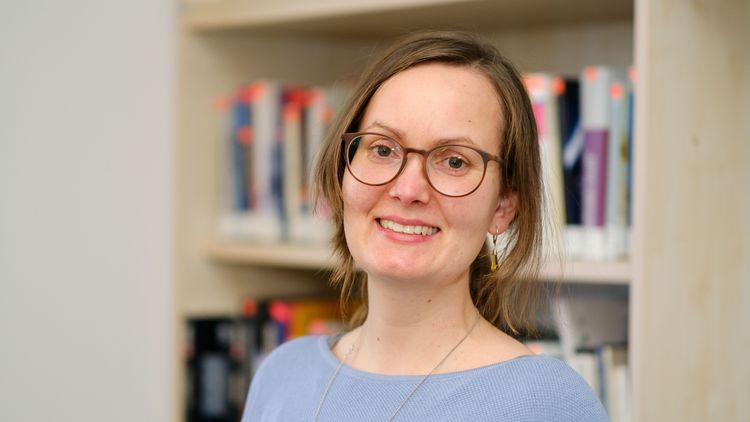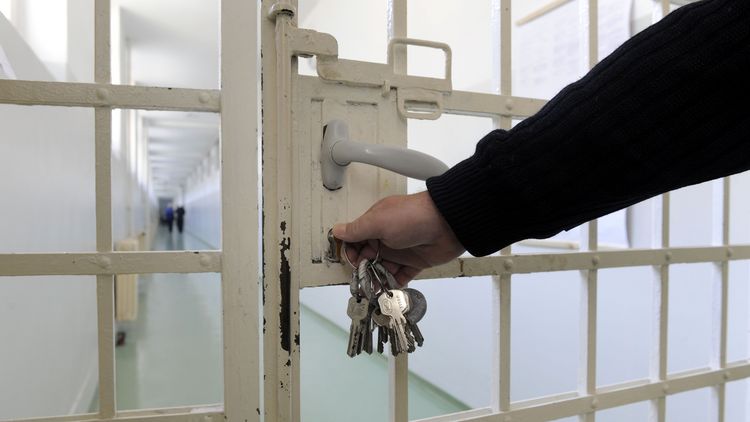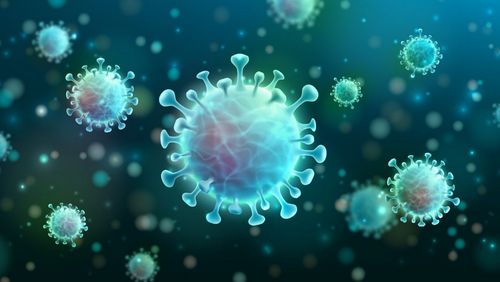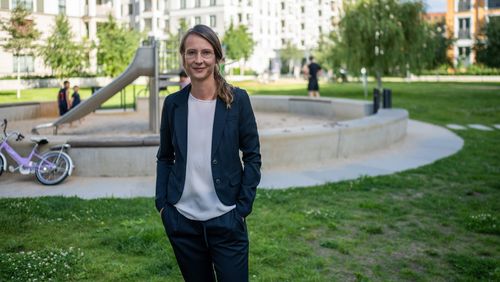Anna Katharina Schliehe is interested in experiences of incarceration. The human geographer has been awarded a fellowship by the prestigious Marie Skłodowska-Curie Actions programme.
The large window of Anna Katharina Schliehe's office on the fourth floor of Building A06 offers a broad vista of the Haarentor Campus and surrounding area. The contrast with the world she normally deals with in her research could hardly be greater.
Her discipline, carceral geography, focuses on closed spaces such as psychiatric wards, nursing homes or children's homes. Schliehe specializes in the study and analysis of prisons. "The focus is not only on the experiences of those who are incarcerated but also of other people affected by the prison sentence, including prison staff and the relatives of the incarcerated," she explains.
"I am particularly interested in examining the experiences of women in prison," says Schliehe, expanding on her research topic. She focuses not only on the time they spend in prison but is also interested in the consequences of a prison sentence once a person is released, for example when they look for a job or a place to live, or regarding travel restrictions to countries such as the US.
Women in prison are a particularly interesting group, because in Germany only about seven percent of prison inmates are female. The particular requirements of women are often overlooked in everyday life in women's prisons, and this complicates the implementation of measures such as special rehabilitation programmes, more diverse work opportunities or training programmes. Schliehe's gender-sensitive work can therefore provide valuable insights regarding practices that could improve prison conditions for women. At present, little is known about the experiences of female prisoners in Germany. Schliehe also wants to help to consolidate carceral geography – defined as geographical engagement with the spaces, practices and experiences of confinement – as a discipline in Germany. "My hope is that the findings will be of interdisciplinary interest and can be applied in various fields," she says.
Keys to a different world
Schliehe was awarded a four-year Marie Skłodowska-Curie research fellowship in September 2021. With this fellowship programme the European Commission aims to promote the mobility and career opportunities of outstanding young researchers. In Oldenburg, Schliehe is conducting her research in Dr Jennifer Turner's Crime and Carcerality research group at the University of Oldenburg's Institute of Social Sciences. The team investigates the effects of carcerality, or incarceration of people, on society.
Schliehe lived in the UK for the last 15 years. After completing a geography degree in Münster, which included an exchange year in Glasgow, she moved back to Scotland and did her Master's and PhD at the University of Glasgow. An EU project took her to the University of Cambridge in 2016, where she worked with colleagues from Norway and Denmark investigating prisoners' experiences. After completing a security training course, Schliehe was given special access to prisons in England and Norway. She was given her own set of keys and allowed to move around freely within the prison facilities. "That was a very intense period and it gave us valuable insights into prison life, as we also ate meals, watched TV and drank coffee with the prisoners," the researcher says. Participating in the everyday life of the inmates provided comprehensive insights into prison life, which Schliehe also hopes to gain in Germany. "Going to a prison several days a week over several months and spending time with the people there gives you a better understanding of the whole system," says Schliehe. She also plans to carry out a survey and conduct interviews in selected institutions. She is looking for women whose prison term is due to end soon in the hope that she will be allowed to continue to see them and monitor their progress once they are released.
But there is still a long way to go. Schliehe is waiting for the approval of the Criminological Service and the Ministry of Justice of North Rhine-Westphalia, Germany's most populous federal state. She wants to do her research there because North Rhine-Westphalia has nine correctional facilities in total, including open and closed prisons and a mother-child facility.
Small-scale with a big impact
Spending time at home with her child and family helps Schliehe to take her mind off her work and the at times very depressing experiences at prison facilities. "Simply walking into a prison is strange and overwhelming, but over time this workplace becomes part of your daily life," Schliehe explains. She also finds her work very rewarding. Dealing with the very different realities of life has given her a new perspective on the world: "I have realised that I want to change some things, and I hope that my research can help achieve this. It feels good to initiate something on a small scale that has great value for social coexistence."





